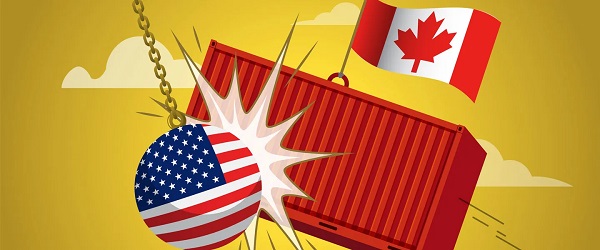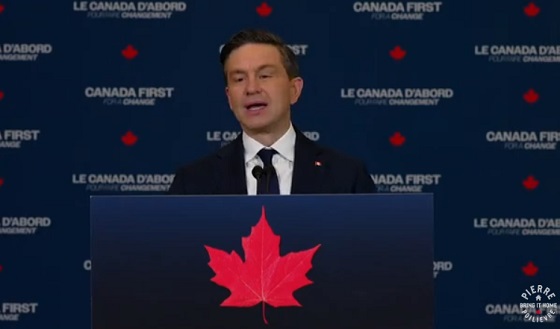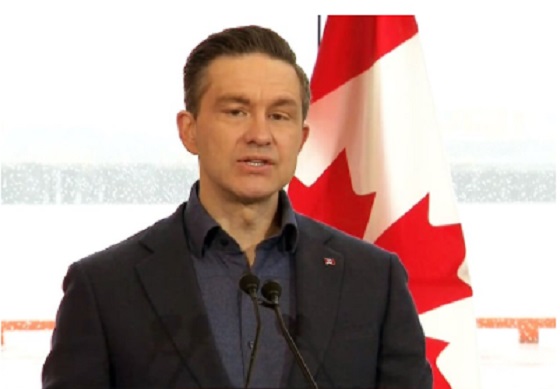Uncategorized
UK Parliament overwhelmingly rejects May’s Brexit deal

LONDON — British lawmakers on Tuesday overwhelmingly rejected Prime Minister Theresa May’s divorce deal with the European Union, plunging the Brexit process into chaos.
The 432-202 vote in the House of Commons was widely expected but still devastating for May, whose fragile leadership is now under siege.
Lawmakers finally got their chance to say yes or no to May’s deal after more than two years of political upheaval — and said no. It was the biggest defeat for a government in the House of Commons in more than a century.
The vote means further turmoil for British politics only 10 weeks before the country is due to leave the EU on March 29. It is not clear if it will push the government toward an abrupt “no-deal” break with the EU, nudge it toward a softer departure, trigger a new election or pave the way for a second referendum that could reverse Britain’s decision to leave.
May, who leads a fragile Conservative minority government, has made delivering Brexit her main task since taking office in 2016 after the country’s decision to leave the EU.
“This is the most significant vote that any of us will ever be part of in our political careers,” she told lawmakers as debate ended. “The time has now come for all of is in this House to make a decision, … a decision that each of us will have to justify and live with for many years to come.”
But the deal was doomed by deep opposition from both sides of the divide over U.K.’s place in the bloc. Pro-Brexit lawmakers say the deal will leave Britain bound indefinitely to EU rules, while pro-EU politicians
The government and opposition parties ordered lawmakers to cancel all other plans to be on hand for the crucial vote. Labour legislator Tulip Siddiq delayed the scheduled cesarean birth of her son so she could attend, arriving in a wheelchair.
As lawmakers debated in the House of Commons chamber, outside there was a cacophony of chants, drums and music from rival bands of pro-EU and pro-Brexit protesters. One group waved blue-and-yellow EU flags, the other brandished “Leave Means Leave” placards.
May postponed a vote on the deal in December to avoid certain defeat, and there were few signs ahead of Tuesday’s vote that sentiment had changed significantly since then.
The most contentious section of the deal is an insurance policy known as the “backstop” that is designed to prevent the reintroduction of border controls between the U.K.’s Northern Ireland and EU member Ireland.
Assurances from EU leaders that the backstop is intended as a temporary measure of last resort completely failed to win over many British skeptics, and the EU is adamant that it will not renegotiate the 585-page withdrawal agreement.
Arlene Foster, who leads Northern Ireland’s Democratic Unionist Party — May’s parliamentary ally — said her party voted against the deal because of the backstop.
“We want the PM to go back to the EU and say ‘the backstop must go,'” Foster said.
Parliament has given May until Monday to come up with a new proposal. So far, May has refused publicly to speculate on a possible “Plan B.”
Some Conservatives expect her to seek further talks with EU leaders on changes before bringing a tweaked version of the bill back to Parliament, even though EU leaders insist the agreement cannot be renegotiated.
European Commission president Jean-Claude Juncker returned Tuesday to Brussels to deal with Brexit issues arising from the vote, amid signals May might be heading back to EU headquarters on Wednesday.
An EU official, who asked not to be identified because of the developing situation, said that it was “Important that he is available and working in Brussels during the coming hours.”
May had argued that rejecting the agreement would lead either to a reversal of Brexit — overturning voters’ decision in the 2016 referendum — or to Britain leaving the bloc without a deal. Economists warn that an abrupt break from the EU could batter the British economy and bring chaotic scenes at borders, ports and airports.
Business groups had appealed for lawmakers to back the deal to provide certainty about the future.
Mike Hawes, chief executive of the Society of Motor Manufacturers and Traders, said parliamentarians “hold the future of the British automotive industry — and the hundreds and thousands of jobs it supports — in their hands.”
“Brexit is already causing us damage in output, costs and jobs, but this does not compare with the catastrophic consequences of being cut adrift from our biggest trading partner overnight,” he said.
The defeat leaves May’s position precarious. The Labour Party says it will call a no-confidence vote in the government if the deal is defeated in an attempt to trigger a general election.
The party has not disclosed the timing of such a motion, which could come as early as Tuesday night, triggering a vote on Wednesday.
Amid the uncertainty, some members of Parliament from both government and opposition parties are exploring ways to use parliamentary procedures to wrest control of the Brexit process away from the government, so that lawmakers by majority vote could specify a new plan for Britain’s EU exit.
But with no clear majority in Parliament for any single alternate course, there is a growing chance that Britain may seek to postpone its departure date while politicians work on a new plan.
___
Associated Press writers Raf Casert in Strasbourg, France and Frank Jordans in Berlin contributed.
___
Follow AP’s full coverage of Brexit at: https://www.apnews.com/Brexit
Jill Lawless, Danica Kirka And Gregory Katz, The Associated Press
Uncategorized
Poilievre on 2025 Election Interference – Carney sill hasn’t fired Liberal MP in Chinese election interference scandal

From Conservative Party Communications
“Yes. He must be disqualified. I find it incredible that Mark Carney would allow someone to run for his party that called for a Canadian citizen to be handed over to a foreign government on a bounty, a foreign government that would almost certainly execute that Canadian citizen.
“Think about that for a second. We have a Liberal MP saying that a Canadian citizen should be handed over to a foreign dictatorship to get a bounty so that that citizen could be murdered. And Mark Carney says he should stay on as a candidate. What does that say about whether Mark Carney would protect Canadians?
“Mark Carney is deeply conflicted. Just in November, he went to Beijing and secured a quarter-billion-dollar loan for his company from a state-owned Chinese bank. He’s deeply compromised, and he will never stand up for Canada against any foreign regime. It is another reason why Mr. Carney must show us all his assets, all the money he owes, all the money that his companies owe to foreign hostile regimes. And this story might not be entirely the story of the bounty, and a Liberal MP calling for a Canadian to be handed over for execution to a foreign government might not be something that the everyday Canadian can relate to because it’s so outrageous. But I ask you this, if Mark Carney would allow his Liberal MP to make a comment like this, when would he ever protect Canada or Canadians against foreign hostility?
“He has never put Canada first, and that’s why we cannot have a fourth Liberal term. After the Lost Liberal Decade, our country is a playground for foreign interference. Our economy is weaker than ever before. Our people more divided. We need a change to put Canada first with a new government that will stand up for the security and economy of our citizens and take back control of our destiny. Let’s bring it home.”
Uncategorized
Canada Needs A Real Plan To Compete Globally

From the Frontier Centre for Public Policy
Ottawa’s ideological policies have left Canada vulnerable. Strategic action is needed now
As Canada navigates an increasingly complex geopolitical landscape, the next federal government must move beyond reflexive anti—Americanism regardless of its political leanings. Instead, Canada should prioritize national interests while avoiding unnecessary conflict and subservience.
The notion that Canada can stand alone is as misguided as the idea that it is only an economic appendage of the United States. Both perspectives have influenced policy in Ottawa at different times, leading to mistakes.
Rather than engaging in futile name-calling or trade disputes, Canada must take strategic steps to reinforce its autonomy. This approach requires a pragmatic view rooted in Realpolitik—recognizing global realities, mitigating risks, governing for the whole country, and seizing opportunities while abandoning failed ideologies.
However, if Washington continues to pursue protectionist measures, Canada must find effective ways to counteract the weakened position Ottawa has placed the country in over the past decade.
One key strategy is diversifying trade relationships, notably by expanding economic ties with emerging markets such as India and Southeast Asia. This will require repairing Canada’s strained relationship with India and regaining political respect in China.
Unlike past Liberal trade missions, which often prioritized ideological talking points over substance, Canada must negotiate deals that protect domestic industries rather than turning summits into platforms for moral posturing.
A more effective approach would be strengthening partnerships with countries that value Canadian resources instead of vilifying them under misguided environmental policies. Expand LNG exports to Europe and Asia and leverage Canada’s critical minerals sector to establish reciprocal supply chains with non-Western economies, reducing economic reliance on the U.S.
Decades of complacency have left Canada vulnerable to American influence over its resource sector. Foreign-funded environmental groups have weakened domestic energy production, handing U.S. industries a strategic advantage. Ottawa must counter this by ensuring Canadian energy is developed at home rather than allowing suppressed domestic production to benefit foreign competitors.
Likewise, a robust industrial policy—prioritizing mining, manufacturing, and agricultural resilience—could reduce dependence on U.S. and Chinese imports. This does not mean adopting European-style subsidies but rather eliminating excessive regulations that make Canadian businesses uncompetitive, including costly domestic carbon tariffs.
Another key vulnerability is Canada’s growing military dependence on the U.S. through NORAD and NATO. While alliances are essential, decades of underfunding and neglect have turned the Canadian Armed Forces into little more than a symbolic force. Canada must learn self-reliance and commit to serious investment in defence.
Increasing defence spending—not to meet NATO targets but to build deterrence—is essential. Ottawa must reform its outdated procurement processes and develop a domestic defence manufacturing base, reducing reliance on foreign arms deals.
Canada’s vast Arctic is also at risk. Without continued investment in northern sovereignty, Ottawa may find itself locked out of its own backyard by more assertive global powers.
For too long, Canada has relied on an economic model that prioritizes federal redistribution over wealth creation and productivity. A competitive tax regime—one that attracts investment instead of punishing success—is essential.
A capital gains tax hike might satisfy activists in Toronto, but it does little to attract investments and encourage economic growth. Likewise, Ottawa must abandon ideological green policies that threaten agri-food production, whether by overregulating farmers or ranchers. At the same time, it must address inefficiencies in supply management once and for all. Canada must be able to feed a growing world without unnecessary bureaucratic obstacles.
Ottawa must also create an environment where businesses can innovate and grow without excessive regulatory burdens. This includes eliminating interprovincial trade barriers that stifle commerce.
Similarly, Canada’s tech sector, long hindered by predatory regulations, should be freed from excessive government interference. Instead of suffocating innovation with compliance mandates, Ottawa should focus on deregulation while implementing stronger security measures for foreign tech firms operating in Canada.
Perhaps Ottawa’s greatest mistake is its knee-jerk reactions to American policies, made without a coherent long-term strategy. Performative trade disputes with Washington and symbolic grandstanding in multilateral organizations do little to advance Canada’s interests.
Instead of reacting emotionally, Canada must take proactive steps to secure its economic, resource, and defence future. That is the role of a responsible government.
History’s best strategists understood that one should never fight an opponent’s war but instead dictate the terms of engagement. Canada’s future does not depend on reacting to Washington’s policies—these are calculated strategies, not whims. Instead, Canada’s success will be determined by its ability to act in the interests of citizens in all regions of the country, and seeing the world as it is rather than how ideological narratives wish it to be.
Marco Navarro-Génie is the vice president of research at the Frontier Centre for Public Policy. With Barry Cooper, he is co-author of Canada’s COVID: The Story of a Pandemic Moral Panic (2023).
-

 2025 Federal Election1 day ago
2025 Federal Election1 day agoMark Carney To Ban Free Speech if Elected
-

 Freedom Convoy1 day ago
Freedom Convoy1 day agoA Miscarriage of Justice
-

 Business2 days ago
Business2 days agoTrumpian chaos—where we are now and what’s coming for Canada
-

 espionage2 days ago
espionage2 days agoHong Kong Detains Parents of Activist Frances Hui Amid $1M Bounty, Echoing Election Interference Fears in Canada
-

 Business2 days ago
Business2 days agoClosing information gaps to strengthen Canada’s border security and track fentanyl
-

 2025 Federal Election12 hours ago
2025 Federal Election12 hours agoPPE Videos, CCP Letters Reveal Pandemic Coordination with Liberal Riding Boss and Former JCCC Leader—While Carney Denies Significant Meeting In Campaign
-

 Health1 day ago
Health1 day agoExpert Medical Record Reviews Of The Two Girls In Texas Who Purportedly Died of Measles
-

 2025 Federal Election1 day ago
2025 Federal Election1 day agoPoilievre will make it harder for politicians to boost their portfolios, close Carney loopholes







